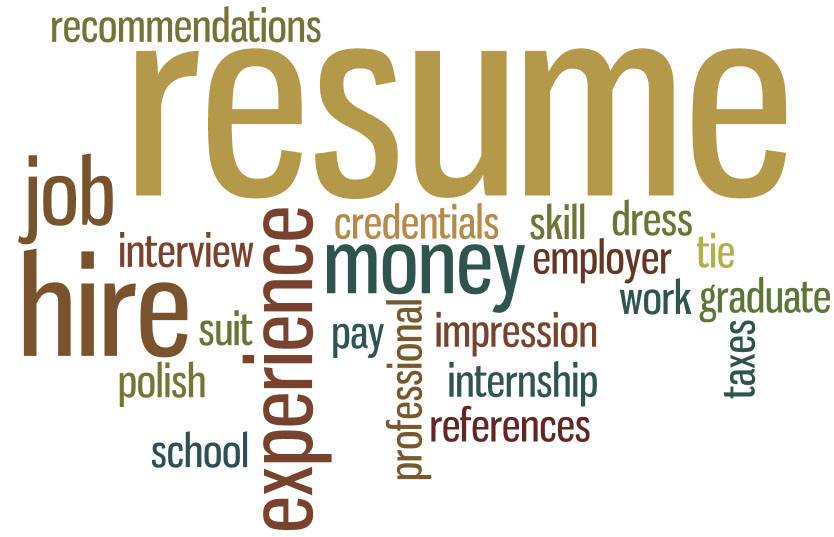As the saying goes, you never get a second chance to make a first impression — and the expression especially applies during the job hunt. But for those who may be new to the working world or haven’t pursued a job in a while, a primer on what employers are looking for in application materials may be needed to stand out for the right reasons.
“Resumes should make it easy for a hiring manager to quickly assess whether a candidate has the right qualifications,” said Paul McDonald, senior executive director of professional staffing firm Robert Half. “Even small changes in format can help job seekers put their best foot forward.”
McDonald added, “Understanding what information to include — and omit — from each section of your resume is the solution. Just one misstep could be enough to sink any chances of landing an interview.”
Following is a section-by-section breakdown of resume best practices, along with some Resumania examples — flubs by real job seekers Robert Half has run across that should not be emulated.
THE HEADING
Do: Include basic information: name, phone number, email address and a link to your LinkedIn profile.
Don’t: Add protected or sensitive details, such as age, race, date of birth, social security number, marital status or religion, and attempts at humor. Trying to be funny usually induces more eye-rolls than laughs. Here are job seekers who missed the memo:
- “Marital status: None that I know of.”
- “Important note: The fastest way to get in touch with me is through email because my laptop is attached to my hip.”
PROFESSIONAL SUMMARY
Do: Lead with a concise overview of your most impressive qualifications, emphasizing skills and achievements most pertinent to the position.
Don’t: Offer empty statements that add little insight into your top selling points. While short and sweet is great, these applicants left out all the details:
- “Summary: I need a job.”
- “Summary: I qualify for this position.”
- “Summary: Ability to think inside the box.”
EDUCATION
Do: Cite the institution you attended, the degree earned, and (optional) the month and year you graduated. Mention if you graduated with honors. If you were a member of several organizations, include that information in a separate section.
Don’t: Include your grade-point average, unless it’s truly impressive and you’re a recent graduate. Listing “relevant courses” is also unnecessary unless you lack work experience. The following job candidates’ education sections certainly didn’t make the grade:
- “Education: I didn’t achieve much. Schools did little to challenge me, so I didn’t put much effort in.”
- “Education: Attended a useless diploma mill.”
- “Education: I’ll be honest, I learn from experience, not the classroom.”
EXPERIENCE
Do: Focus less on your responsibilities and more on the positive impact you made. Convert statements that merely describe your job duties into ones that spotlight specific accomplishments.
Don’t: Include a laundry list of every duty you’ve ever performed. Also, avoid vague wording such as participated in or was responsible for and instead use more powerful verbs such as created, led, initiated or increased. These candidates certainly didn’t win over prospective employers:
- “Experience: Too much to list. Ask me about it in person at my interview.”
- “Experience: Recently escaped from a bad boss situation after two years. It feels odd but amazing to finally be free of that jerk and his negative energy.”
- “Experience: Technical support. I was terminated after arriving to training late four times.”
SKILLS
Do: Highlight specific skills that dovetail with the job you’re seeking, paying special attention to soft skills. Employers know there’s a good chance candidates with strong communication, leadership and interpersonal abilities, for example, will mesh well with colleagues and the company culture.
Don’t: Waste precious space being vague — or pretentious — about your abilities. These applicants violated another mortal resume sin: not proofreading:
- “Skills: Writing, listening and public eaking. Yes, I can engage in intellectual conversations with a myrad of professionals!”
- “Skills: I always try to be goo at what I am doing.”
- “Skills: Efficient and efficient.”
ACHIEVEMENTS AND HONORS
Do: Understand that all accomplishments are not created equal. Focus on achievements that connect to your career.
Don’t: List so-called “accomplishments” that are dated or unrelated to your profession. This mid-career professional should have kept this personal point of pride to himself:
- “Achievements: When I was nine years old, I started a neighborhood newspaper staffed entirely by the grade school kids I played with every day. They went on strike after a few weeks, and I edited the paper myself until it folded.”
Thanks for reading CPA Practice Advisor!
Subscribe Already registered? Log In
Need more information? Read the FAQs
Tags: Accounting




